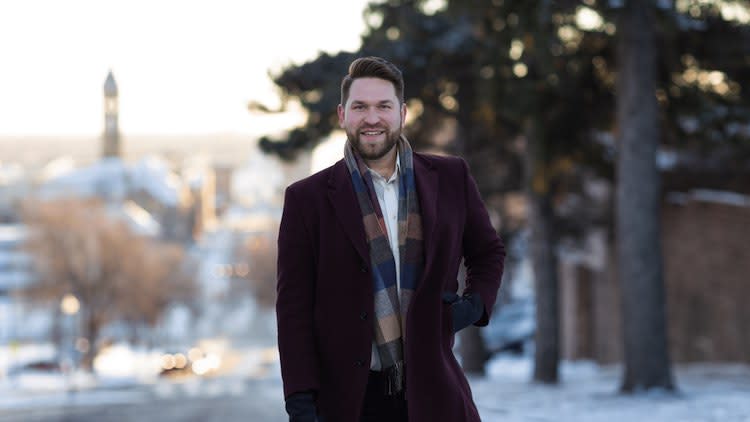South Dakota Elects First Gay Male Legislator, Kameron Nelson

South Dakota once again has LGBTQ+ representation in its state legislature.
Kameron Nelson, a gay man, won a seat in the South Dakota House from District 10, centered on Sioux Falls, the state’s largest city.
In South Dakota, each district elects two representatives and one senator. For the representative seats, he and fellow Democrat Erin Healy bested Republicans John Mogen and Tom Sutton.
South Dakota’s previous LGBTQ+ representation came from Angie Buhl O’Donnell, a bisexual woman who was a state senator from 2011 to 2015. Nelson is the first gay man in the legislature and the first out member of the House.
Mayor Annise Parker, president and CEO of the LGBTQ Victory Fund, which endorsed Nelson, issued the following statement: “Kameron shattered this lavender ceiling because of the exceptional grassroots support he energized through his courageous and compassionate approach to politics. Voters are ready for the change he is prepared to bring, from safeguarding abortion rights to increasing equity within South Dakota’s education and health care systems. The future of LGBTQ equality will be fought and won in state legislatures, and we are confident Kameron will be a fierce advocate and effective lawmaker on behalf of the community.”
Nelson is a South Dakota native who lived in Minneapolis for a time but has returned to South Dakota. “A lot of our young people leave the state for a place that’s more inclusive. That’s why I ran,” he told the Sioux Falls Argus Leader. “I want to make South Dakota that place. I’m so ready for South Dakota to be the welcoming place that I know it is.”
He worked in theater production for a time and is now director of major gifts for the LifeScape Foundation in Sioux Falls, which helps provide resources for children and adults with disabilities and complex medical needs.
His priorities as a legislator will include voting rights, reproductive freedom, inclusive nondiscrimination protections, economic development, a living wage, and improvements to education. Democrats are far outnumbered in the state legislature, but Republicans are divided between far-right and moderate factions, a situation that opens up opportunities for Democrats. “Even though we have small numbers, we really get to leverage that power,” Nelson noted in an Advocate interview before the election.
A record number of out LGBTQ+ people ran for state legislatures this year. Going into Tuesday, four states had zero representation in their lawmaking bodies: Alaska, Louisiana, Mississippi, and South Dakota. The situation could change in Alaska as well as South Dakota — there were four out candidates running in Alaska. Check back for those results.

